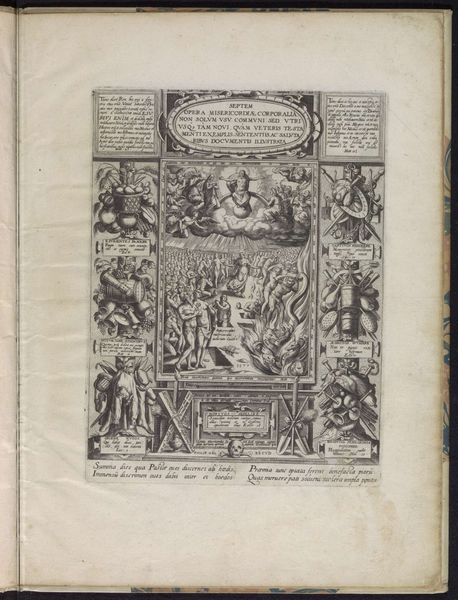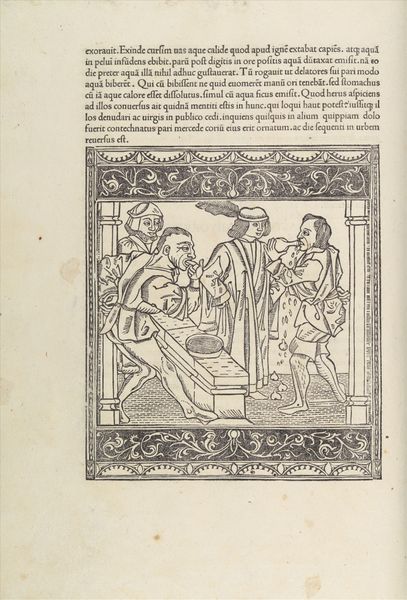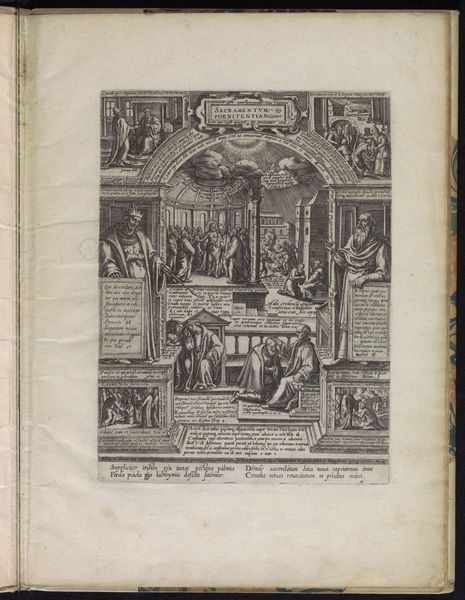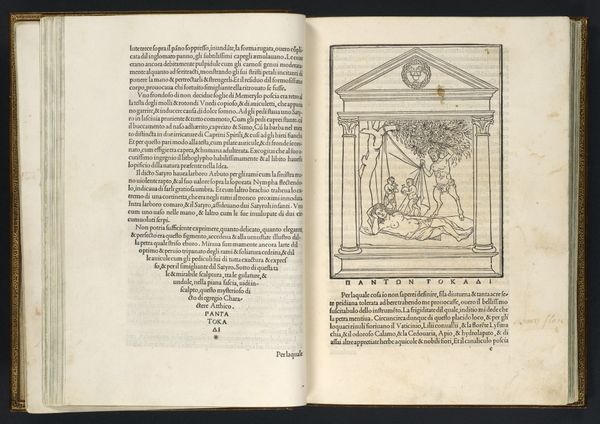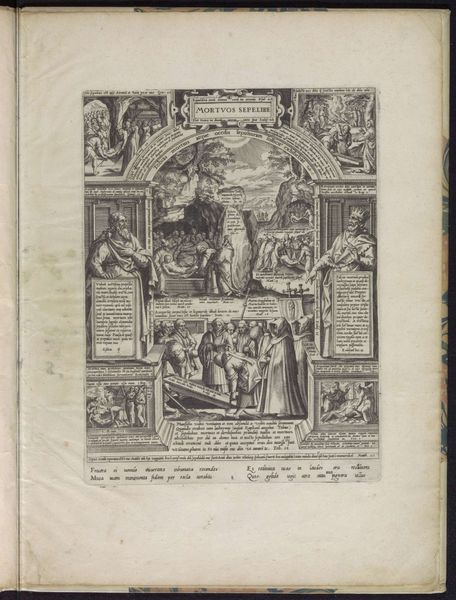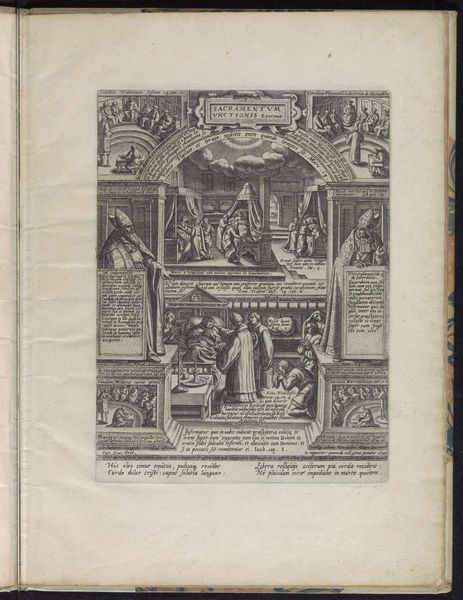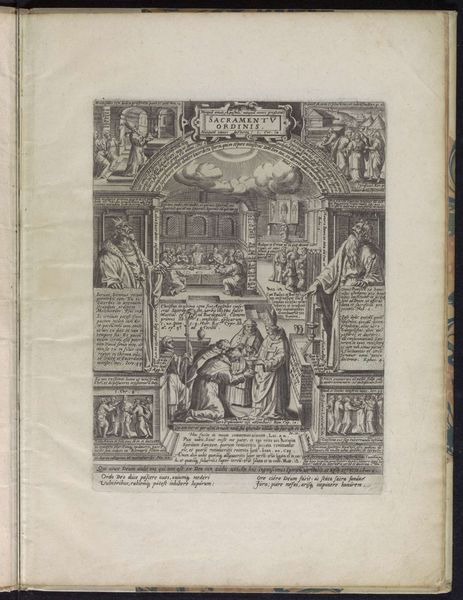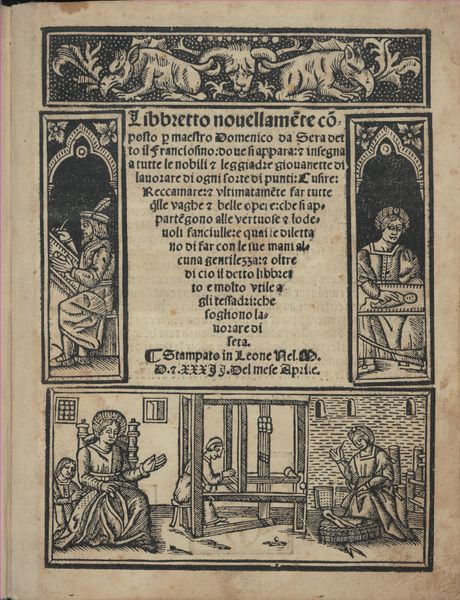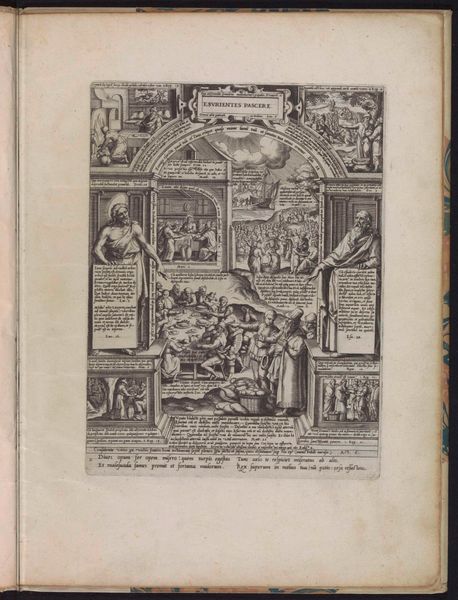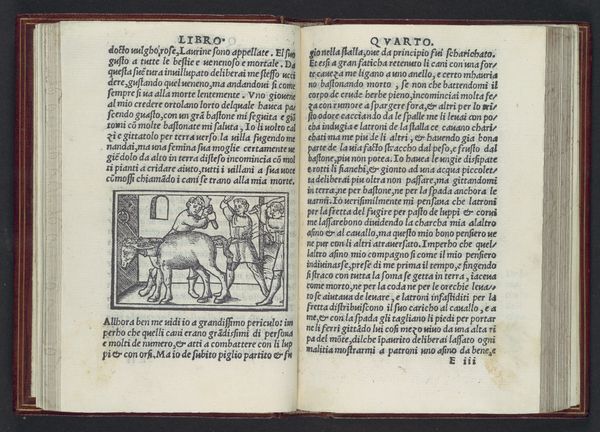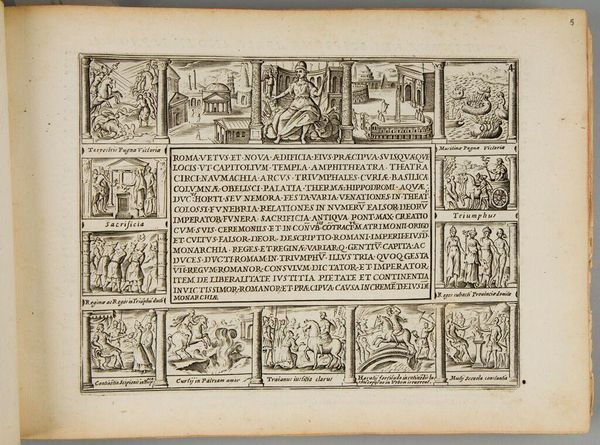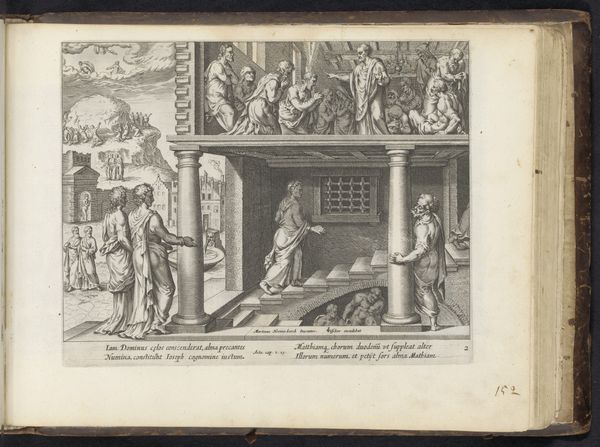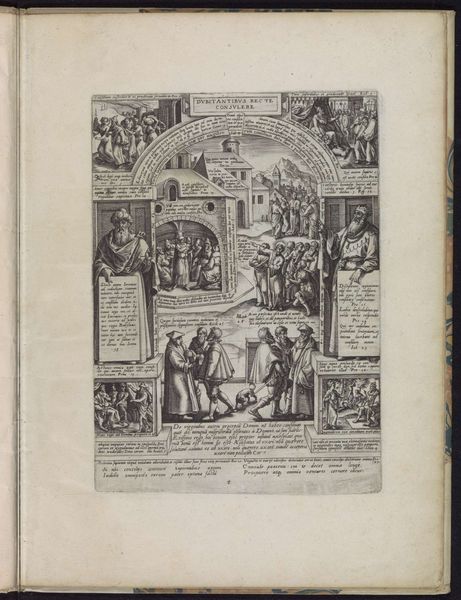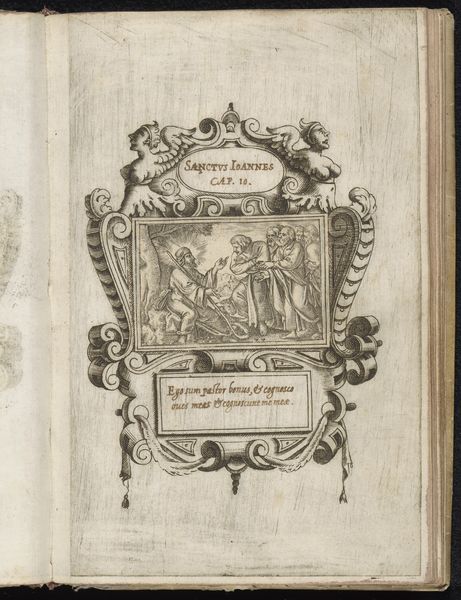
drawing, print, paper, ink, engraving
#
drawing
#
medieval
#
narrative-art
# print
#
gothic
#
paper
#
ink
#
italian-renaissance
#
engraving
#
miniature
Dimensions: 226 × 300 mm
Copyright: Public Domain
This page from Simon Vostre’s Book of Hours, printed in Paris around 1500, depicts the Nativity. Here, the haloed Virgin Mary kneels in adoration before the newborn Christ, a humble scene underscored by the presence of the ox and ass. But observe how this image echoes through time. Mary’s kneeling posture—a gesture of reverence—reappears in countless depictions of adoration across cultures, an echo of pre-Christian, pagan traditions, where supplication to deities was commonplace. The cave-like stable, here a humble shelter, evokes the archetypal womb, a recurring motif symbolizing rebirth and transformation. Consider the psychological weight of these symbols. The collective memory, etched into our subconscious, recognizes these gestures and settings. Like a dream, the image speaks to us on a deeper level, stirring emotions of humility, hope, and maternal warmth. Thus, we witness the survival and adaptation of symbols across time. The Nativity scene, imbued with Christian significance, borrows from older, pagan traditions, demonstrating the cyclical nature of cultural memory and the enduring power of images.
Comments
No comments
Be the first to comment and join the conversation on the ultimate creative platform.
